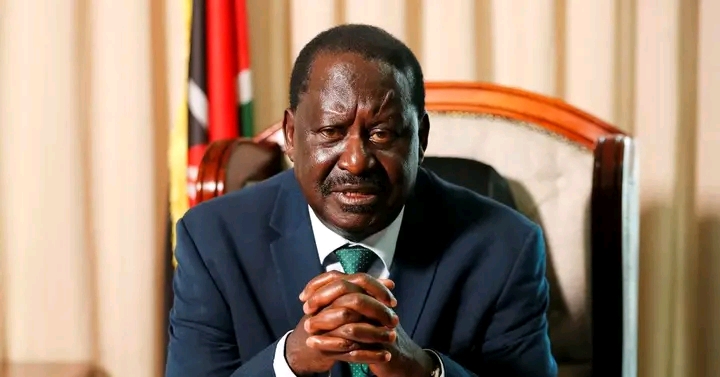Raila Odinga, Kenya’s former Prime Minister and one of the country’s most enduring political figures, has died at the age of 80.
Odinga passed away on the morning of October 15 after suffering a cardiac arrest while receiving treatment at an Ayurvedic hospital in Kochi, Kerala, India.
According to hospital officials, the cardiac arrest occurred during his morning walk. Despite immediate medical attention and resuscitation efforts, he was pronounced dead shortly after 9:00 a.m. local time.
His death was confirmed by family members, including his brother, Siaya Senator Oburu Oginga, who described the loss as “profound.” In a brief statement, the Odinga family asked for privacy as they mourn the patriarch’s passing.
A Towering Figure in Kenyan Politics
Raila Odinga served as Kenya’s Prime Minister from 2008 to 2013 under a power-sharing agreement with then-President Mwai Kibaki, following the disputed 2007 presidential election. His tenure marked a historic moment in Kenya’s governance, as he became the country’s first Prime Minister under the new coalition government.
Odinga was a central figure in Kenya’s push for democratic reform, particularly in the 1990s, when he championed the movement for multiparty democracy. Over the decades, he emerged as a defining voice in opposition politics challenging successive governments and advocating for electoral justice, good governance, and social equity.
Recent Health and Passing
Odinga had traveled to India in recent weeks for medical treatment after reports of his ill health surfaced earlier this month. His family and political party, Azimio la Umoja, had earlier dismissed rumors about his condition, assuring the public that he was in stable health.
News of his passing has sent shockwaves throughout Kenya and beyond, with tributes pouring in from political leaders, international organizations, and citizens who admired his resilience and vision.
A Legacy of Reform and Resilience
As the leader of the Azimio la Umoja coalition, Odinga was instrumental in shaping Kenya’s opposition agenda, focusing on governance reforms and economic challenges such as the rising cost of living.
His career was characterized by both triumphs and controversies. Despite several unsuccessful presidential bids, including in 2007, 2013, 2017, and 2022, Odinga remained a symbol of democratic struggle and a champion for marginalized communities.
In 2018, he made global headlines with the “handshake” between him and then-President Uhuru Kenyatta, an event that ushered in the Building Bridges Initiative (BBI)—an ambitious plan aimed at promoting national unity and addressing longstanding political and social divisions.
Known for his charismatic and often combative political style, Odinga earned both admiration and criticism. To millions of his supporters, however, he was affectionately known as “the people’s president”—a reflection of his lifelong dedication to justice, equality, and reform.
End of an Era
Raila Odinga is survived by his wife, Ida Odinga, and their children. Details of his funeral and memorial arrangements are expected to be announced in the coming days.
His death comes as Kenya approaches the 2027 general elections, leaving uncertainty about the future of the opposition movement he led for decades.
Odinga’s passing marks the end of an era in Kenyan politics closing the chapter on a life defined by courage, conviction, and a steadfast belief in democracy. His legacy is certain to continue shaping Kenya’s political and social landscape for generations to come.

